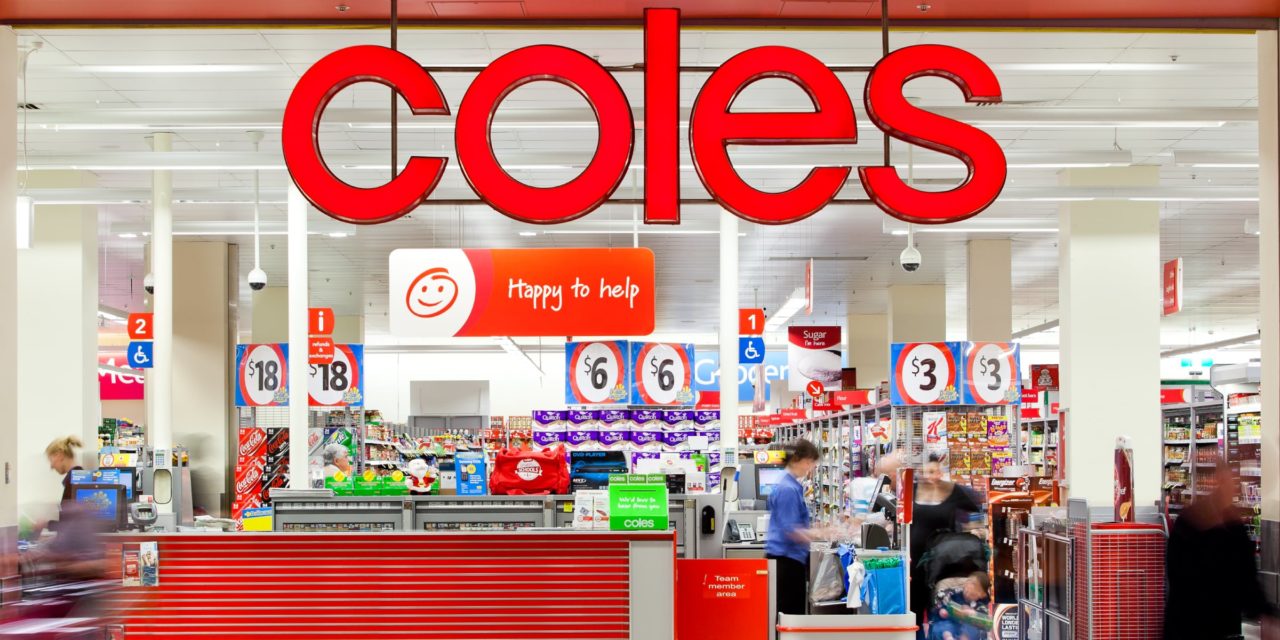
An expanded partnership between Coles and Uber Eats promises to make on-demand grocery delivery services available across Australia. The supermarket giant pledges to add 500 brick-and-mortar stores to the app.
It marks a statement of intent from the incumbent grocery and rideshare players, given the recent collapse of independent competitor Milkrun and the extreme difficulty of operating an ‘instant’ delivery startup in Australia without major corporate backing.
Coles and Uber Eats revealed the expanded partnership Thursday afternoon, declaring that products from 40 Coles stores across Melbourne are now available through the delivery app.
The companies said hundreds of other stores would join the Uber Eats network in the coming months.
Customers can select fresh food, pantry staples, and other household items through the app, collected from Coles stores and delivered by Uber Eats workers.
Mirroring the US-based Instacart, shoppers can communicate with the Uber Eats worker assigned to pick and pack their orders while they are in-store, allowing them to substitute out-of-stock products.
Coles general manager of digital Operations and ventures, Claire Pallot, said the service will provide a “fast, reliable, and affordable” alternative to in-store shopping and Coles Online deliveries, which are usually delivered the next day.
“Customers can continue to enjoy great value and quality products they find at Coles, but with the convenience of on-demand delivery through Uber Eats,” she said.
Lucas Groeneveld, Uber Eats’ general manager of retail for the ANZ region, said the expanded partnership aims to “meet customers’ growing desire to get (almost) anything they need delivered on-demand, and this expansion will supercharge the wide variety of groceries available on the app.”
Coles and Uber Eats publicly revealed the partnership just two days after Milkrun, the last independent player from Australia’s instant delivery boom, declared it will cease trading due to brutal economic and capital market conditions.
Milkrun, which launched in early 2022 with $75 million in venture capital backing, operated differently from the Coles and Uber Eats model.
Instead of tasking gig workers with picking and packing goods from a regular retailer, Milkrun owned and operated neighborhood ‘hubs’ that served as grocery warehouses and dispatch centres.
It also employed riders as staff, unlike the independent contractor model adopted by Uber Eats.
Ultimately, the cost of those hubs, employee wages, and surging wholesale costs collided with the normalization of shopping habits in a post-lockdown environment and a reticence among investors to pump more funding into a business with an unclear path to profitability.
Jackie Vullinghs, a partner at VC fund and early Milkrun investor AirTree Ventures, said Milkrun had executed an “ambitious vision” that “forced incumbents to invest in improving their offerings.”
Coles and Uber Eats proclaiming their updated “offerings” so soon after Milkrun’s demise suggests the incumbents did indeed pay attention to on-demand delivery ventures like Milkrun, and competitors Send, Quicko, and Voly, all of which promised unprecedented convenience but struggled to find a sustainable foothold in the Australian market.
While the partnership operates vastly differently from those startups, and the success of Instacart abroad shows the viability of some on-demand grocery services, the same cultural and economic factors contributing to Milkrun’s closure may still be felt at Coles.
In the six months ended January 1, 2023, Coles recorded e-commerce sales of $1.4 billion, a 6.6% drop from the prior corresponding period.
Coles attributed that drop to Australia’s shopping habits, saying the value of online orders declined “as COVID-19 behaviors normalised and some customers returned to shopping in-store.”
As more Australians return to the workplace, or integrate out-of-home work back into their routines, the convenience of on-demand delivery will compete against the old-school utility of visiting the supermarket on the way home.
The partnership caught the attention of the influential Transport Workers Union (TWU), representing workers across the delivery sector and gig economy.
After declaring Milkrun failed because its employee-rider model could not compete against competitors using cheaper independent contractors, the TWU gave its conditional approval to the Coles-Uber Eats partnership.
That is because both Coles and Uber, Uber Eats’ parent company, have signed agreements with the TWU vowing to support the rights of workers in the gig sector.
“For the last decade we have seen major corporates and multi-nationals abuse their position at the top of the supply chain to exert downward pressure on conditions and income, with the gig economy providing one of the major channels for exploitation,” TWU national secretary Michael Kaine said Thursday.
“For the first time, there is now a genuine, constructive opportunity to turn that around and build better working conditions.”
Coles in 2019 signed an agreement asserting the “right to annual leave, fair rates, superannuation, safe working conditions and union representation” for workers in the on-demand economy.
A broader charter arrived in 2020, with Coles CEO Matt Swindells declaring the business and the union have shared priorities.
“We have a common goal of improving safety through the transport supply chain, and by taking a collaborative approach, we will be even more effective in achieving safer outcomes that benefit everyone,” Swindells said.
Separately, a 2022 deal struck between Uber and the TWU affirmed their joint support for an independent body capable of setting minimum earnings, benefits, and conditions for platform workers.
Given those agreements, Kaine described the Coles-Uber Eats partnership as “a potential breakthrough for embedding decency at the heart of on-demand work.
“A major company like Coles would only take this step because it was confident that core industry standards will be upheld.”
Even so, the union says it will keep close tabs on what promises to be the most significant expansion of Australian on-demand delivery services to date.
“We will monitor this hawkishly to make sure it lives up to its potential,” Kaine said.

